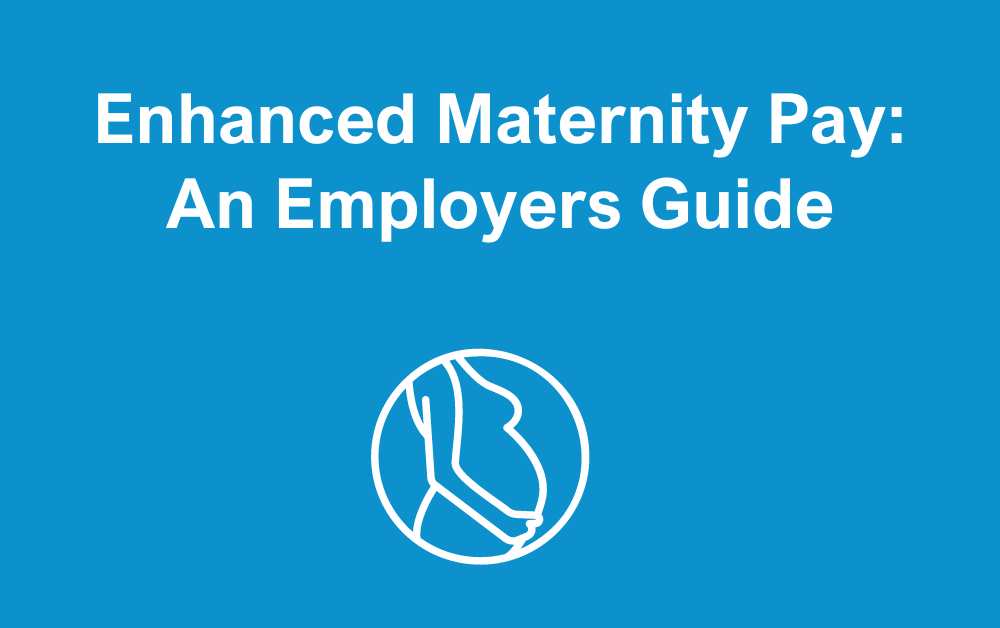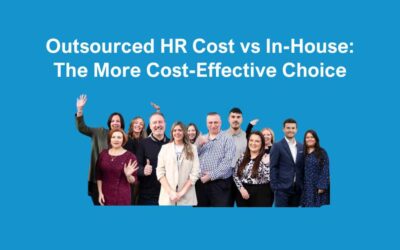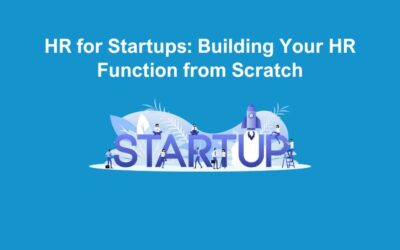In recent years, there has been a noticeable shift in the way businesses in the UK approach employee benefits. With the rising importance of work-life balance, diversity, and inclusion, many companies that were not previously offering enhanced maternity pay are now seriously considering it.
One notable example that has stirred attention is the recent announcement by Lidl, regarding improvements in their family pay. Lidl will now be the first UK supermarket to double the amount of paid adoption and maternity leave they provide their staff. This means that eligible employees at Lidl will now receive six months on full pay. This is an improvement from their previous offering of 14 weeks.
This announcement underscores the growing importance of supporting working parents. It also demonstrates the evolving landscape of employee benefits in the UK.
What is enhanced maternity pay
Some employers may decide to offer their employees enhanced maternity pay. This is a benefit that offers extra support to new parents, over and above the statutory minimum entitlement. Unlike statutory maternity pay, which is set by the government, enhanced maternity pay offers more generous terms—this could include a higher rate of pay, full pay for a certain period, or a longer duration of paid leave. It’s designed to ease the financial pressure on new parents and support a smoother transition into parenthood.
According to a report by YouGov, 33% of businesses only offered their employees the statutory minimum requirement while 18% have decided to provide their staff between 4 and 13 weeks enhanced pay. The report also showed that around 21% of businesses offer 26 weeks of enhanced maternity pay at or close to full pay. This was then followed by 13 weeks of statutory maternity pay.
The YouGov report also shared data on paternity pay and the results were interesting. 49% of businesses only offered the statutory minimum of two weeks, 3% offered 3 weeks, and 9% offered 4 weeks. A further 13% of businesses offered between 5 and 23 weeks’ paid paternity leave.
Example of Enhanced Maternity Pay
We have seen a varied approach when supporting clients with their enhanced maternity benefits. Examples include:
- Full pay for the first 6 weeks (instead of 90%) followed by 33 weeks of the usual statutory maternity rate.
- Full pay for 12 weeks, followed by 27 weeks of SMP
- 13 weeks off full pay, then 13 weeks of half pay. The employee will then receive 13 weeks of SMP after that.
Should Enhanced Pay Apply to all Family-Friendly Policies?
Offering enhanced maternity pay is not a legal requirement, it’s completely down to your discretion. However, if you decide you are able to offer your staff this extra support, we encourage you to apply it to your other family-friendly policies such as adoption leave and shared parental leave. This will help you to avoid a potential discrimination claim.
Furthermore, if you are offering increased pay for maternity, you should also look at an enhanced paternity pay policy.
What’s the difference between enhanced maternity pay and statutory maternity pay?
Statutory Maternity Pay (SMP) and Enhanced Maternity Pay are two distinct types of maternity pay that employers can offer to their employees. However, each have its own characteristics and purposes.
SMP is a legal requirement mandated by the government. The current statutory maternity pay in the UK provides eligible employees with 90% of their average weekly earnings for the first six weeks. This is followed by £187.18 or 90% of their average weekly earnings (whichever is lower) for the remaining 33 weeks.
On the other hand, Enhanced Maternity Pay is entirely voluntary. Companies offering enhanced maternity pay go beyond legal requirements to provide more generous financial support to employees during their maternity leave. The eligibility criteria, the amount of pay, and the source of payment vary widely from one employer to another.
The Main Benefits of Enhanced Maternity Pay
Offering enhanced maternity leave can bring several advantages to employers, including:
Attracting Top Talent:
A strong maternity package can help attract skilled candidates who value family-friendly policies and a supportive workplace culture.
Improving Retention:
Employees are more likely to return to work and stay with a company that supports them through major life events like parenthood, reducing turnover and associated recruitment costs.
Boosting Employee Morale and Loyalty:
Providing enhanced benefits shows a genuine commitment to employee wellbeing, which can lead to greater job satisfaction, loyalty, and long-term engagement.
Enhancing Employer Brand:
Companies that go beyond the minimum requirements are often viewed more favourably by the public and potential hires, helping to build a positive reputation.
Supporting Diversity and Inclusion:
Enhanced maternity policies can help create a more inclusive and equitable workplace, supporting gender diversity at all levels of the organisation.
Will employees have to pay enhanced maternity pay back if they resign before returning to work?
If your employee resigns before returning to work after maternity leave, they will not need to pay back any statutory maternity pay they’ve received. However, they may be expected to pay back some or all of their enhanced maternity pay if this is stated in their contract.
Employer Responsibilities
When providing enhanced maternity pay, employers have a number of responsibilities to ensure the benefit is managed fairly, consistently, and in line with legal requirements:
-
Clear Policy and Communication: Employers should have a clear, written maternity policy that outlines the enhanced pay structure, eligibility criteria, and how employees can apply. This should be easily accessible and communicated during onboarding and employee updates.
-
Consistency and Fairness: It’s important to apply the policy consistently across the workforce to avoid claims of discrimination or unfair treatment. Any variation in offering enhanced maternity pay should be based on objective and lawful criteria.
-
Compliance with Statutory Requirements: Enhanced pay is offered in addition to the statutory minimum, not instead of it. Employers must still meet all statutory obligations, including offering the correct amount of leave and statutory pay.
-
Payroll and Record-Keeping: Employers must ensure that payroll systems are set up correctly to deliver enhanced payments and that all records related to leave and pay are accurately maintained.
-
Return to Work Support: As part of a supportive maternity policy, employers should also consider how they help employees return to work. This might include flexible working options, phased returns, or keep-in-touch days.
-
Review and Monitor: Regularly reviewing enhanced maternity pay policies helps ensure they remain competitive, compliant, and aligned with business goals.
By taking a proactive and responsible approach, employers can offer enhanced maternity pay that not only supports staff but also strengthens the overall workplace culture
How The HR Booth Can Help
At The HR Booth, we make it easier for businesses to offer enhanced maternity pay with confidence. Whether you’re introducing this benefit for the first time or reviewing an existing policy, we’re here to support you.
Here’s how we can help:
- Clear Advice – We explain your legal responsibilities in simple terms and help you decide what’s right for your business.
- Tailored Policies – We work with you to create maternity policies that reflect your values and meet the needs of your team.
- Manager Support – We provide guidance and training to ensure your policies are applied fairly and consistently.
- Ongoing Help – As laws change or your business grows, we’ll keep your policies up to date.
We’re here to take the stress out of HR and help you create a supportive, family-friendly workplace.
In Conclusion
The landscape of employee benefits is shifting, and enhanced maternity pay is becoming an increasingly important part of attracting and retaining talent. As seen with Lidl’s recent changes, leading employers are stepping up their support for working parents and setting a new standard in the process.
Offering enhanced maternity pay can benefit both employees and employers—supporting staff wellbeing, reducing turnover, and improving your reputation as a responsible, family-friendly employer. If you’re ready to explore how enhanced maternity pay could work for your business, The HR Booth is here to help you every step of the way.
What is enhanced Maternity Allowance?
Enhanced maternity allowance acts as a further benefit that some employers choose to provide. This is a bonus to the statutory maternity allowance that all employees off on maternity leave must receive.
How much is enhanced maternity pay?
Enhanced maternity pay will differ from company to company. However the structure may look like this:
- Full pay – this may be up to 26 weeks.
- Partial pay – this will follow the full pay period and may be at 50% of full pay.
What is additional Maternity Allowance?
Why should employers offer enhanced maternity pay?
There are lots of benefits to offering enhanced maternity pay:
- Attract and retain the best and most talented employees.
- Enhance employee morale
- Develop a reputation as a supportive employer.
- Promoting gender equality in the workplace.
- It acts as a unique selling point.
How does enhanced maternity pay compare to statutory maternity pay?
What companies offer enhanced maternity pay?
Some UK companies offer enhanced maternity pay.
John Lewis – 14 weeks full pay, 12 weeks 50% pay
Google – 24 weeks of full pay and are offered flexible working arrangements once returned.
Barclays – 6 weeks pay from day 1. 26 weeks pay if the employee has 26+ weeks of service.
The common theme amongst the aforementioned companies is that they are global with a large number of employees, hence the focus upon employee benefits.
Should I offer enhanced maternity pay?
What are the disadvantages of enhanced maternity pay?
Do you get taxed on enhanced maternity pay?
What impact can offering enhanced maternity pay have on a company’s culture and employee satisfaction?
There are various positive impact factors in this instance. For example, you are demonstrating a commitment and loyalty towards your employees. They will share this back to you by showing loyalty towards you and your business.
This will also help create a positive workplace culture as you are showing respect for your employees. They will also feel valued, even when off on maternity leave.







